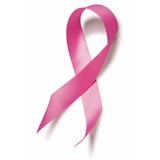More Effort Needed for Breast Cancer Prevention
Breast cancer is the second leading cause of cancer death among American women. In 2011, an estimated 230,480 new cases and 57,650 deaths from breast cancer occurred in theUnited States. Early detection of breast cancer by mammography screening can reduce breast cancer mortality in women.
In November 2009, the U.S. Preventive Services Task Force (USPSTF) updated its recommendation statement, discouraging routine mammography screenings for women less than 50 years of age, and recommending biennial mammography screenings for women aged 50 to 74 years.
To measure and improve breast cancer prevention among women, CHCN annually examines mammography screening rates at our clinics. In the past several years, the overall CHCN mammography screening rates have been approximately 55% among women aged 52 to 74. In 2012 audit, an estimated 9,000 women aged 52 to 74 who received care at CHCN clinics did not receive timely screening.
To better serve our patients, CHCN health centers have implemented a chronic disease management system (i2iTracks). When used at its full potential, the new system can serve as a registry to trigger mammogram screening reminders to clinic staff or providers. Providers can then work with staff to establish standard protocols so that patients can be reminded directly. Differences in the use of the i2i registry may influence mammography rates. Some member centers have not used i2i as a tool in their mammography screening practice while others have only used i2i as a referral management system. Centers which use the new system to trigger mammography reminders for all eligible patients may have more success than those which only target patients already added to the registry. More practice sharing and discussions will help our member centers to use i2i more effectively.
Another strategy to increase mammography screening is to provide free mammograms to uninsured patients through external funding programs. The fact that managed care members had significantly higher mammography screening rates than non-managed care members (71% vs. 49%) strongly suggests that lack of access to mammography screenings is a key barrier for our patients. Health centers with well-functioning systems that streamline access to such programs could share their experiences with other member centers.
Detailed results of the breast cancer screening study have been shared with the Medical Directors. If you have clinic-specific questions, please check in with your Medical Director or feel free to contact the CHCN Chief Medical Officer, Dr. Melissa Marshall, mmarshall@chcnetwork.org.
